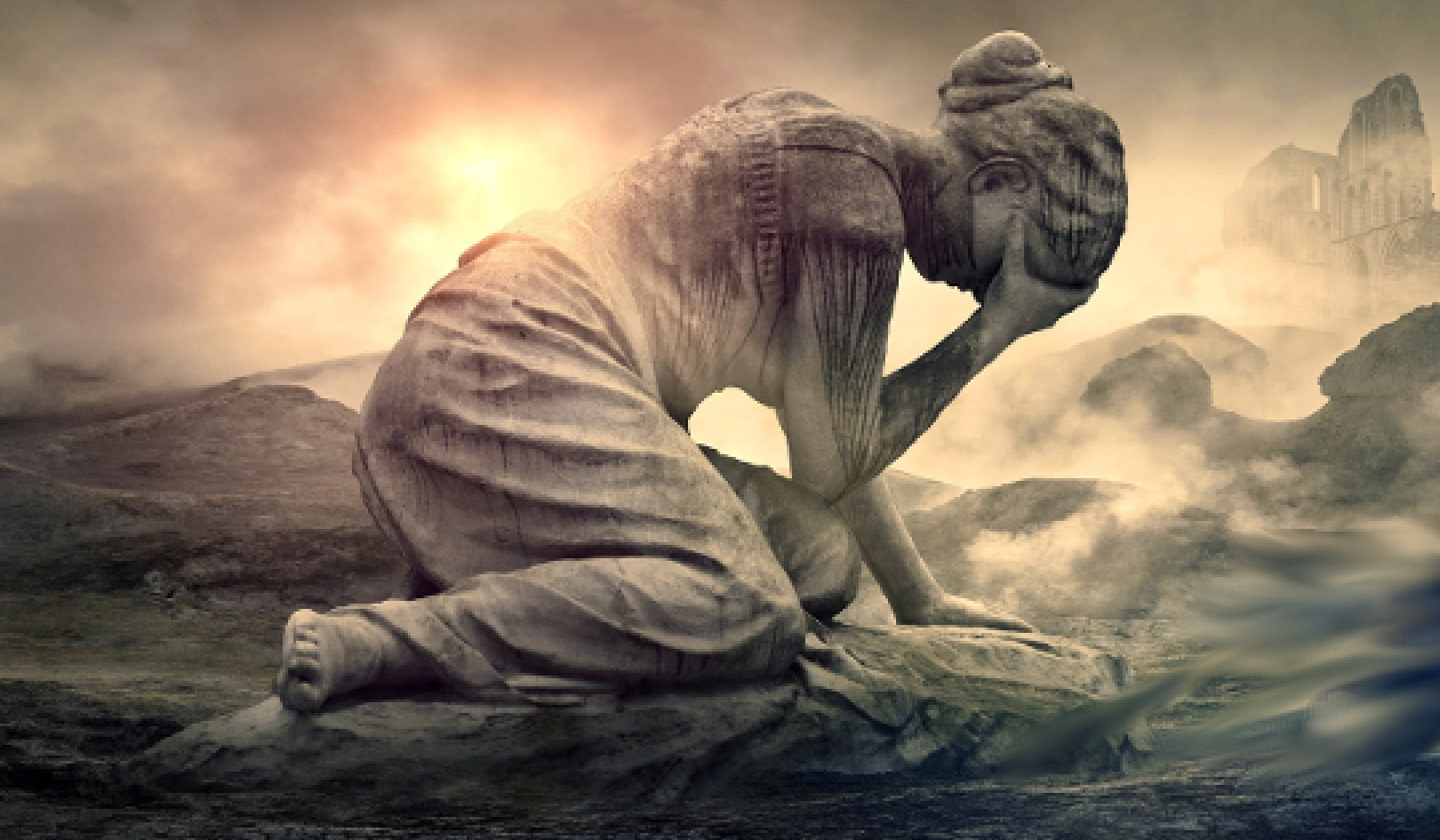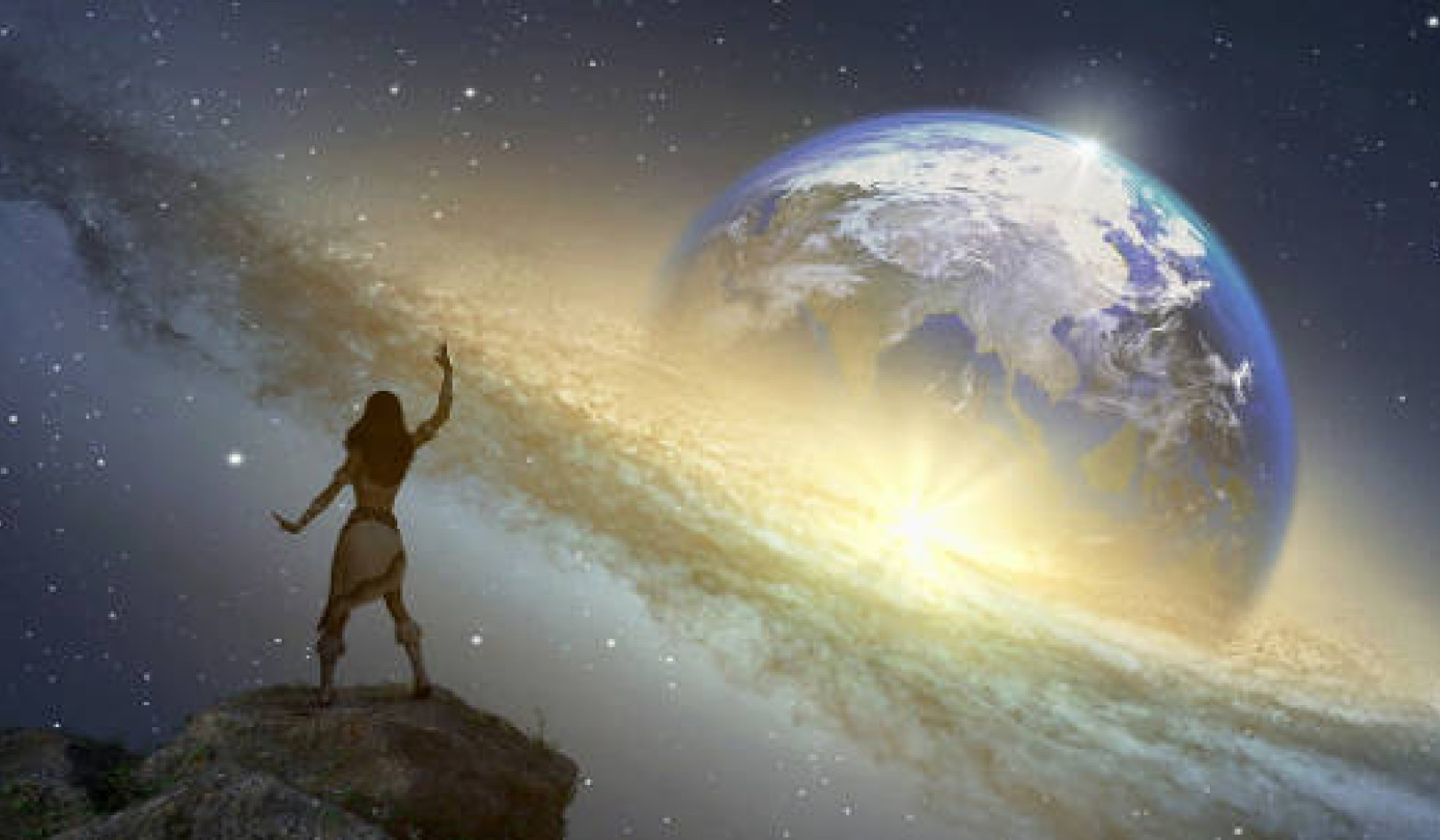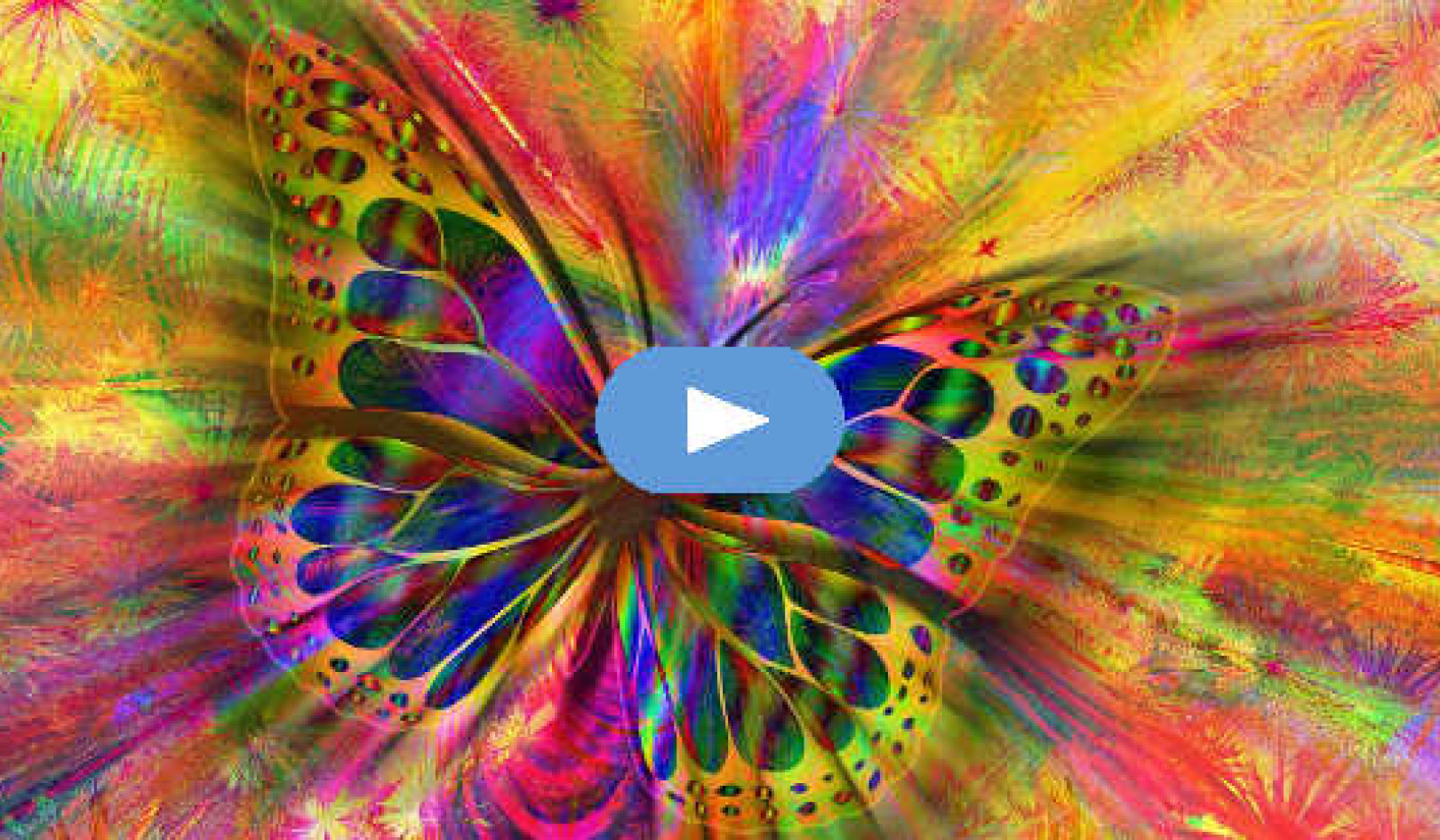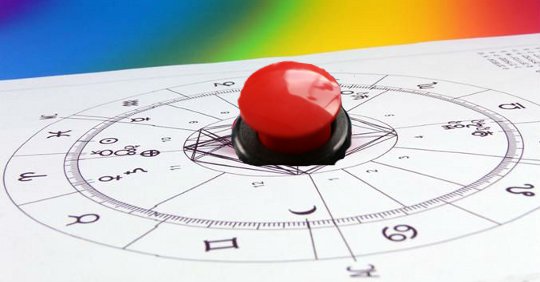
Astrology is a powerful art, capable of enhancing our lives by enabling us to understand our own process of unfolding and how we can cooperate with the energies within and around us. But it is also a dangerous art, and can be easily misused. We need to be painfully honest with ourselves, highly integrated, grounded in our beings, empowered in our actions, as well as clearly dedicated to and able to live according to the highest within us if we are to use our astrological knowledge constructively without falling prey to many of the dangers of toying with cosmic forces. We need to be gods ourselves, and none of us are.
What then are the dangers of astrology which may have a detrimental effect upon our relationship to ourselves, to others, to reality as a whole and society at large? What unfinished business in ourselves may incline us to become victims of our art, rather than artists? What do we need to face within ourselves and in our use of astrology in order to become more conscious, more effective, and certainly more humble practitioners? Only by making the unconscious conscious and orienting ourselves toward confronting those weaknesses which undermine us personally and professionally do we have any chance of becoming real helpers and healers.
Danger # 1: Losing Direct Contact with Ourselves
The more we relate to ourselves and the world around us through highly abstract symbols, the more we risk diminishing our contact with our direct experience. We become less in touch with our bodies and our feelings and less capable of being fully alive and open to the present moment. As we develop our detachment, we may also increase our dissociation. As we expand our understanding, we may simultaneously contact our direct awareness of ourselves. Attempting to gain control over our experience through separating from it and viewing it objectively, we may paradoxically lose contact with our deepest selves and therefore lose control and the capacity to direct our lives.
Danger #2: Attachment to Self-Concept
We are not our self-concepts. We are who we are in each moment -- feeling, thinking, acting. We are subjects, not objects; our selves exist in each experience of the "I" rather than the "me" which is the image of ourselves we hold. The experience of "I am, I feel, I want, I can, I will" operating in life and in action connects us with our core energy, whereas the concepts of "I am impulsive because I have Moon in Aries" or "I need freedom and variety in love relationships because I have Venus square Uranus" are only concepts and have nothing to do with the deep-seated experience of ourselves as alive, empowered, active individuals. Too much focus on the "me", the concepts we create to gain understanding of ourselves, may actually weaken our experience of the "I".
Our constructs are aids, but not substitutes for that sense of self which resides not in the mind but at our very core. The more fully we are connected to that core, the less we need our constructs to define ourselves. When we fully possess ourselves, when we can fully be ourselves, we are not dependent upon astrology to provide us with a self-concept. Our self-concepts are, after all, related to our egos. As we become more grounded in our beings, we become more capable of relinquishing our egos, which function best as servants rather than as masters.
Danger #3: Mistaking Knowledge for Power
Our knowledge of planetary influences can provide for us a pseudo-security, a false sense of power, a buffer against the chaos in-here and the unknown-out-there, both of which we may fear to confront directly. Being alone in the vast universe is a terrifying experience; not knowing where we are going or what might happen is particularly frightening if we do not believe we have the resources to cope with the unexpected. Our knowledge may feel like a protection; it may deaden our anxiety to that we are not overwhelmed by it. But in doing so, it also weakens us. Only through experiencing our fear, our uncertainty, our powerlessness can we develop trust, inner certainty, and inner power. Only by giving up control can we gain control; only by not knowing can we transcend the limits of knowing and align ourselves with the deeper guiding forces within us.
Danger #4: Weakening Our Intuition
When we repeatedly consult the ephemeris before making a decision and when we determine our attitude toward a particular person after calculating a chart, we weaken our trust in our own being. Instead of using and strengthening our intuitive muscles, we let them atrophy; we allow our astrological knowledge rather than our deeper internal sensing process to make choices for us. As astrology becomes a greater authority, like a god who makes judgments and proclamations and frightens us with threats of catastrophe, we lose whatever internal authority we once possessed. The power of the planets looms larger as we become smaller.
Danger #5: Mistaking the Map for Reality
The astrological chart is a map, and not reality, just as our self-concepts are concepts rather than our selves. If we are driving a car in unfamiliar territory, we consult a map, determine our route, put the map away and drive carefully and competently to our chosen destination. We arrive there not only because we have consulted the map, but also because we have been alert to the position of our feet on the accelerator and brake, and to the road ahead of us. If we were to drive with the map in front of our face, staring at the yellow and blue lines on the paper rather than looking through our windshield, we would not only fail to reach our chosen destination; we might instead arrive in a hospital or jail or end up dead and with more direct contact to the astral dimension than we had sought. Our knowledge is a boon to us when used appropriately, a burden when used inappropriately.
Danger #6: Self-Fulfilling Prophecy
Although our concepts are not reality, our concepts have the ability to influence reality. Our assumptions and beliefs lead us to act in ways which may be self-fulfilling prophecies; they influence our own behavior and the behavior of others toward us. If we expect to be rejected, we may assume an aloof and defensive manner which invites rejection; if we expect to be depressed under a Saturn transit, we may feed ourselves with negative messages which drain our energy and prevent us from involving ourselves in nourishing and revitalizing activities and interactions.
Psychologists have discovered that teachers who believe particular students to be slow or unintelligent treat those students differently than they treat students they believe to be quick and bright. As a result, the students influenced by such negative assumptions do not function as competently as those whom the teacher favored. The teacher behaves according to certain assumptions, and the students respond in a self-fulfilling manner. How important it is then for us as astrologers not only to pay attention to those beliefs, assumptions, and expectations which we are consciously aware of, but also to ferret out those hidden assumptions and expectations which may manifest behaviors and events that are detrimental to ourselves and others, and may therefore become self-fulfilling prophecies.
Danger # 7: Magnification of "Unfinished Business"
Because the planets are archetypes for our core energies, focusing upon them intensifies the patterns that are related to those energies. Our subconscious processes, our repressions, our unfinished business as related to the meanings of different planets are highlighted each time we tune into that planet, whether in our own charts or other people's charts. Symbols have an uncanny ability to concentrate and release energy buried deep within us; each time we focus upon a symbol of the psyche, we in effect stir up the energy expressed by that symbol. We invite it to play its part in the drama of our lives -- creating internal experiences, external events and patterns of attraction and behavior with others.
Whatever our fears, negativities, and compulsions, our focus upon the planets is likely to magnify them as well as the more positive facets of ourselves which the planets also symbolize. Certainly, focusing upon Saturn, planet of fear, may compel our fear to surface; however, paying attention to any or all of the planets is likely to intensify and activate subconscious issues and emotions, simply because we are attuning ourselves to archetypes or symbols of the subconscious. If we fear the future and are continually protecting ourselves against some unknown catastrophe, our use of astrology may magnify that fear. If we experience considerable doubt regarding our worth and keep justifying ourselves and parading our egos as a defense against our inner emptiness, our use of astrology may provide us with fuel for rationalization, support for that subconscious need to compensate for what is lacking within us. We may utilize astrology in service of our repression. Defining ourselves, for example, by our Moon in Taurus square Saturn in Leo, we may take pride in our shrewd practicality and caution, while rationalizing our unwillingness to take risks which might lead to failure.
When we reflect upon the planetary archetypes, we are focusing upon the energies within us which they represent. However, the emphasis upon the symbol enables us to make contact with those energies on a mental plane and to perceive them as outside ourselves without directly experiencing them. Whatever we have not acknowledged and accepted internally, we are therefore likely to project upon the symbol. As in most projections, we become dependent upon the object of projection because it represents to us a part of ourselves that we have denied. The more out of contact we are, the more likely we are to project; the more attention we give our object of projection, the less able we are to encounter the energies within us which we have disowned. When we have many holes in our identity and self-awareness, we are especially prone to become attached to symbols as well as to people and possessions which represent for us what we lack.
Some of us, sensing our growing dependency and loss of power, may seek to break free; we may battle with our growing obsession with astrology, or with the negativities within us which it brings to light. Like the bride of Jason, who donned a magic cloak woven for her by Medea -- a cloak which burned her flesh and adhered to her more tenaciously the more she sought to cast it off -- so we seek to cast off our growing dependency upon the astrological map, yet find ourselves bound even further as a result of each attempt. The danger may not be in astrology so much as in our use of it and our relationship to our own energies. The battle is resolved not by refusing to consult the ephemeris, but rather by gaining deeper contact with our own beings.
Danger #8: Powerlessness and Loss of Center
Of all our unfinished issues, probably one of the most significant for many of us is our experience of powerlessness, of not existing at the center of our selves and not feeling capable of shaping our lives according to our wills and aims. If we tend to experience ourselves as victims, as acted upon rather than as acting agents, as revolving around some known or unknown center rather than being the center of our own universe, astrology can reinforce this tendency.
In order to function competently, we need to direct our will toward the tasks in front of us -- to experience "I want, I can, and I will" and to take action as a result of that internal experience. Our sense of self seems to exist most strongly as we experience and express ourselves and actively create our reality. Often we are in conflict with forces which clash with our intentions; we confront the limitations of external circumstances, unforeseen obstacles, people who oppose us. As our competence, self-respect, and self-sufficiency increase we can become able to acknowledge and effectively meet most of these obstacles.
Astrology, like behavioristic psychology and deterministic philosophy, emphasizes influences operating upon us, rather than our capacity to act, operate, or direct. The more attention we pay to what may be influencing us, without simultaneously experiencing control over our behavior or influence upon our environment, the more we may become disempowered. Our energy may shift from BEING (in contact with ourselves and the world) and DOING to KNOWING and BEING DONE TO. Rather than subjects, we become objects; we no longer are captains of our soul or masters of our lives. As we lose our center, the planetary influences seem to have a more pronounced effect upon us, for we exist without a central, integrating force which can effectively channel and guide our energies.
In the psychological system of psychosynthesis, founded by Roberto Assagioli, much emphasis is placed upon subpersonalities, the internal personalities within us which have specific wants and needs, often conflict with each other, and which may at times dominate our personalities. Although one aim of psychosynthesis is to contact, understand, accept, and meet the needs of each subpersonality, the overall goal is to build a center of awareness and will capable of coordinating, integrating, and directing them.
Consider a play without a director, the actors each improvising according to the mood of the moment, without reference to each other; the result is likely to be uncoordinated and chaotic. Consider also a meeting without a chairperson or a class without a teacher and how little is accomplished, and how much difficulty participants or students have behaving in a unified, fulfilling, and productive manner. Likewise, our personalities become strongly dysfunctional when the director or chairperson is absent. Our planetary subpersonalities may battle to meet their needs, often playing out repetitive unconscious patterns which actually sabotage all chances of satisfying needs. No central force is present to perceive the underlying issues, to signal for one subpersonality to enter and another to exit, to create a symphony out of a barrage of discordant notes.
People who possess an internal director, who experience themselves as centers of their own universe, who are in contact with their bodies and feelings and with the core of their own beings, may not be deeply influenced by the planets. They may rise above their subconscious processes. A Saturn transit experienced by an unintegrated or dissociated person as severe depression may be for an aware and integrated person a temporary flagging of emotional energy, a minor adjustment, rather than overwhelming mire.
What a vicious circle we create when, experiencing less power, we turn our attention more to the planets or our subpersonalities rather than contacting and acting from our central core. Our increased sense of powerlessness may lead us to seek even more intensively for answers which elude us because the resolution is not in our minds, not in the ephemeris, not in our knowledge and interpretation of planetary positions. It is at the base of ourselves, in our relationship to a core facet of our beings which we have disowned.
Danger #9: Alienation from Others
A final danger in our use of astrology is the effect which our astrological preoccupation may have upon relationships with other people, individually, and with society at large. Certainly, our finesse with astrological jargon enables us to label and diagnose each other, to erect concepts and classifications which incline us to relate to each other through a mental barrier rather than perceiving and responding to each other directly, in all our vulnerability. How much easier, upon meeting a potential friend or lover, to calculate his chart and orient our attitudes and behaviors toward our understanding of his t-square to Pluto or his Sun conjunct Venus, rather than tuning into our own insecure perceptions and feelings with this person, without the preconceptions that astrology provides.
If we experience difficulty making real contact with people, especially sharing the depths of our feelings, needs, and vulnerabilities, we can use our astrological jargon to create an illusion of intimacy which we, in fact, are not experiencing. For us to converse about "your Saturn conjunct my Moon" and "your Mars opposing my Mercury" feels a lot safer than my saying to you that, when I experience a need for comfort and reassurance, I am hurt by your tendency to withdraw, and that I often do not feel heard by you because you are frequently interrupting me when I really want to communicate. Able to express the issues between us symbolically, we may alleviate the tension of unspoken thoughts and shy away even further from establishing the real communication which makes relationships deeply fulfilling.
We may, as a result, obscure rather than reveal our actual experience as we encounter each other through abstract symbols rather than direct communication.
Astrology is, after all, a language -- a highly mystical and quite private language since such a small proportion of people are familiar with it. If we lack confidence in our worth, our social skills, and our capacity to relate in a way which evokes acceptance from others and a sense of belongingness with groups, we may subconsciously use our access to this secret language as a means of compensation. Astrology may become a way to create the inner experience of specialness and power which enables us to stand above and apart from others rather than on the same level.
If we belong to the secret brotherhood and sisterhood of the mystics, and are capable of communing with the magical forces of the universe, why should we want to participate in tedious small talk with the uninitiated who are not, after all, at our "level" of consciousness? The more important our esoteric understanding becomes to us, the more unsatisfying ordinary conversation may be with those who do not share that understanding; we may forget that the deepest and most fulfilling contact between people occurs not through the mind but through our eye contact, our openness of heart, and our direct expression of and response to genuine feeling.
We may, as a result, spend much of our time with those who "speak astrology", and feel increasingly alienated with and insecure around those who are not "on our wavelength". We may become more identified with the outer fringes of society, more susceptible to rejection from people who are ignorant of or biased against the mystic arts, and more inclined to experience ourselves as separate from and sometimes superior to the common person. We may become less able to identify with, empathize with and sustain satisfying contact with those who do not share our passion than we could before we became astrology students.
Ironically, our interest in astrology, the Aquarian art, which may have been motivated by our desire to experience our connection to the mysteries of the universe, may lead us away from fulfilling the ideals of Aquarius, and certainly away from integrating its opposite polarity of Leo, when we allow our preoccupation to result in experiences of increased separateness and alienation rather than togetherness and union. As our minds expand, our hearts may contract. As we become increasingly ruled by our minds and our pursuit of knowledge, we may become less willing and able to open our hearts -- to pain, sadness, need and longing, and also to love.
Reprinted with permission of the publisher,
CRCS Publications, PO Box 1460, Sebastopol, CA 95473.
Article Source:
The Astrology of Self-Discovery: An In-depth Exploration of the Potentials Revealed in Your Birth Chart
by Tracy Marks.
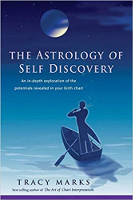 The Astrology of Self-Discovery provides guidance for achieving self-development through attunement to planetary influences and gives direction to those struggling with life's issues. Combining astrology, depth psychology, and spiritual teachings, Tracy Marks helps the reader make contact with the planets as they function as internal archetypes and personalities, as well as gain insight, perspective, and the tools for self-empowerment. She has helpful advice on how to prepare for and handle outer planet transits, especially Neptune and Pluto, which she covers in depth. She also addresses the healing of the "inner child" and the feminine principle as expressed by the Moon, and the lunar nodes as an expression of life purpose.
The Astrology of Self-Discovery provides guidance for achieving self-development through attunement to planetary influences and gives direction to those struggling with life's issues. Combining astrology, depth psychology, and spiritual teachings, Tracy Marks helps the reader make contact with the planets as they function as internal archetypes and personalities, as well as gain insight, perspective, and the tools for self-empowerment. She has helpful advice on how to prepare for and handle outer planet transits, especially Neptune and Pluto, which she covers in depth. She also addresses the healing of the "inner child" and the feminine principle as expressed by the Moon, and the lunar nodes as an expression of life purpose.
Provocative questions and worksheets help the reader apply the life lessons she presents. Her experience as a psychotherapist and spiritual teacher has enabled her to synthesize her knowledge of psychology with her astrological work to elucidate a path of deepening personal awareness and cooperation with planetary energies. The unique insights in The Astrology of Self-Discovery give fresh, new life to the practice of astrology.
Info/Order this book (revised and expanded edition)
About The Author
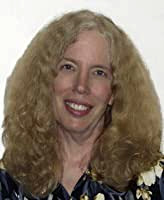 Tracy Marks, M.A., is a licensed mental health counselor, astrologer, writer, instructor, and nature photographer. Her transformational astrology books, drawing upon her in-depth psychodynamic understanding include Astrology of Self-Discovery, The Art of Chart Interpretation, and Your Secret Self: Illuminating the The Twelfth House.
Tracy Marks, M.A., is a licensed mental health counselor, astrologer, writer, instructor, and nature photographer. Her transformational astrology books, drawing upon her in-depth psychodynamic understanding include Astrology of Self-Discovery, The Art of Chart Interpretation, and Your Secret Self: Illuminating the The Twelfth House.
A psychotherapist since 1985, she currently maintains both counseling and astrology practices in Arlington, Massachusetts, and also teaches personal growth, literature and computer graphics courses in continuing education programs.



















